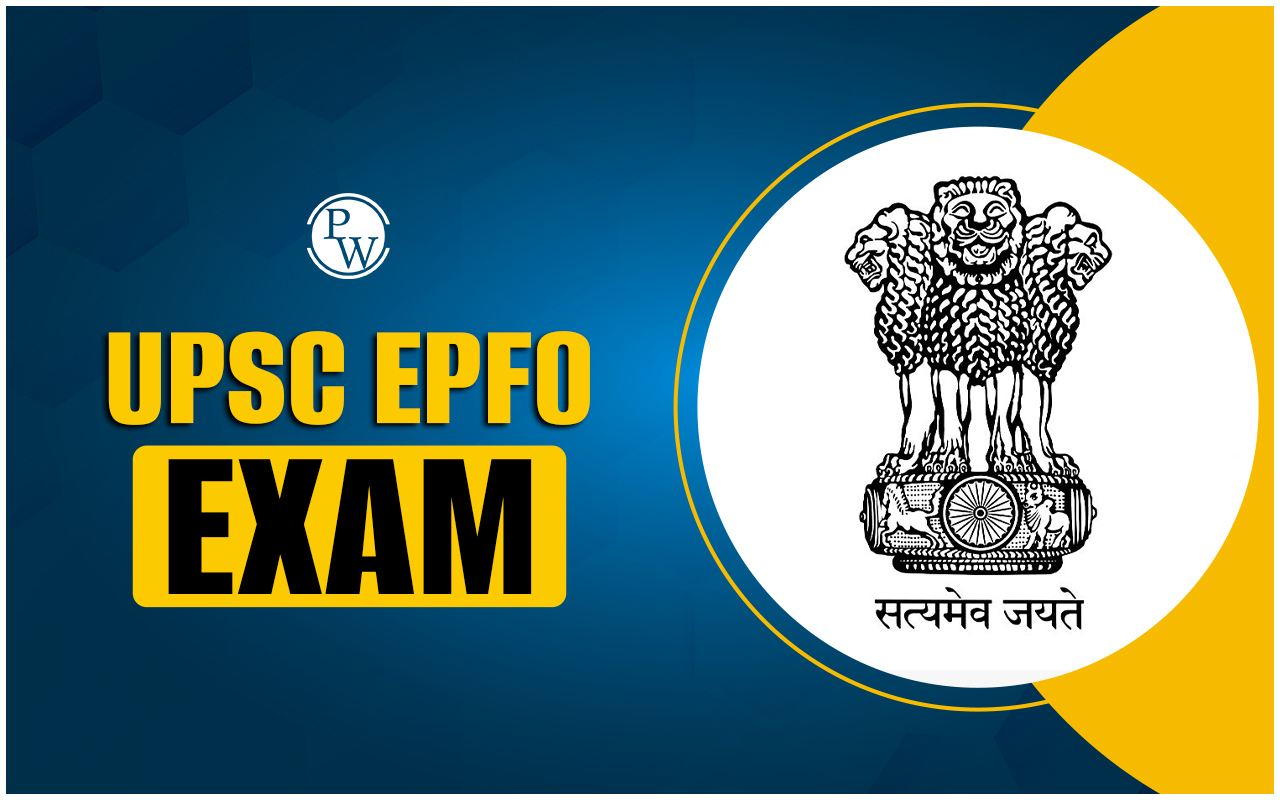

Finance Commission (FC) of India plays an important role in shaping fiscal federalism and driving the financial development of the nation. It was established under Article 280 of the Constitution, the Finance Commission of India advises on distributing resources between the Union and the states every five years. Its recommendations are not compulsory but generally influence how funds are allocated to enhance fiscal equity, autonomy, and efficiency across all levels of government.
The 16th Finance Commission is expected to address emerging challenges, from economic recovery post-Covid-19 to the evolving GST landscape. In this guidepost, we will explore the structure, role, past impacts, and new challenges faced by FCs.
What is the Finance Commission of India? Article 280
The Finance Commission of India is a constitutional body established under Article 280 of the Indian Constitution . The President of India establishes this body every five years to estimate the financial condition of the central and state governments and recommend how the central taxes should be divided between them. FC is an independent advisory body that ensures fair revenue distribution, considering factors like population, income disparity, and infrastructure needs.
The Finance Commission also suggests ways to enhance fiscal discipline , improve governance , and manage resource deficits . Each Finance Commission has a unique mandate designed according to the evolving economic conditions, which guides its approach to evaluating fiscal distribution.
Objectives of the Finance Commission of India
The key objectives of the Finance Commission of India include:
- Equitable Revenue Sharing: Recommends how central government should allocate its revenues to state governments.
- Promoting Fiscal Federalism: Strengthen fiscal relations between the central and state governments to ensure balanced regional development.
- Evaluating Resource Needs: Estimates the financial requirements of each state and provides recommendations on grants and resources accordingly.
- Ensuring Fiscal Stability: Promote the fiscal sector across states by setting recommendations for revenue management.
Role and Functions of the Finance Commission of India
The Finance Commission's role and functions extend beyond revenue sharing. These functions lay the foundation for fiscal federalism in India and include:
- Tax Distribution Recommendations: Determine the distribution ratio of central taxes between the Union and states.
- Grants-in-Aid to States: Recommend grants-in-aid to states that require financial support beyond their revenue-generating capacity.
- Distribution Among States: Suggest the principles for distributing central resources among the states to ensure balanced growth.
- Additional Functions Assigned by the President: The President can assign other financial duties as if deemed necessary, making the role of the Finance Commission adaptable to current economic challenges.
Contributions and Recommendations by Finance Commissions
Over many years, Finance Commissions have made multiple impactful recommendations, while influencing public finance, governance, and development in India:
- Tax Devolution : The share of states in central tax pools increased from 10% to 42% , providing greater fiscal autonomy.
- Performance-Based Incentives : To encourage fiscal sector and reforms, states receive rewards for achieving pre-determined targets in population control, forest conservation, and power sector reforms.
- Disaster Relief Funds : State and local bodies receive funds to enhance preparedness and resilience to respond to natural calamities effectively.
- Sectoral Grants : Specific grants target critical sectors such as health, education, and justice delivery to bridge service delivery gaps.
These interventions not only support fair and equitable growth across states but also promote a sense of competitive and cooperative federalism that enhances governance and service quality.
| The 13th Finance Commission introduced grants for enhancing judicial services which supported Lok Adalats and established judicial academies for the training of public prosecutors and judicial officers. |
Monitoring of Finance Commission Recommendations
The Finance Commission recommendations are advisory, but they usually receive Union approval. The recommendations' approval is formalized through a Presidential Order which specifies the implementation period, generally for five years . The Union government provides an explanatory memorandum to Parliament that details the implementation status and justifies any deviations. Ministries and departments at both the Union and state levels are intended to implement and monitor these recommendations according to the resources and subject areas involved.
Challenges Faced by Finance Commissions
Despite its key role, the Finance Commission also encounters various challenges:
- Data Gaps and Quality : Accurate data is necessary, yet inconsistencies and outdated information on interstate trade flows, public service costs, and scheme outcomes can compromise assessments.
- Political Economy Factors : Balancing competing interests among Union government, state governments, and civil society along with the nation’s changing political and economic landscape is difficult.
- Implementation Challenges : Finance Commissions have limited oversight on how recommendations are enforced, facing issues like delays, misuse of funds, and deviations.
- Evaluation Difficulties : Measuring the exact impact of recommendations on fiscal health and development outcomes is challenging due to the difficulty in isolating effects and establishing causality.
16th Finance Commission
As India prepares for the 16th Finance Commission , which will likely be constituted, there is already growing anticipation regarding its recommendations. The 16th Finance Commission will likely address many significant issues, especially the economic impact of the COVID-19 pandemic, the expansion of government welfare schemes, and new fiscal challenges.
Key Focus Areas
- Post-Pandemic Economic Recovery: The economic imbalances caused by the pandemic, including issues around debt, health infrastructure, and social welfare.
- Fiscal Consolidation: Recommend measures to bring down the fiscal deficit and maintain debt sustainability across states.
- Climate Financing and Disaster Management: Emphasize sustainable financing for environmental initiatives, focusing on disaster-prone areas and climate resilience.
- Digital Transformation and Infrastructure Funding: With the rapid digitization of the Indian economy, there may be recommendations to promote funding for technology and infrastructure.
Expected Challenges
The 16th Finance Commission will encounter several challenges, such as:
- Balancing State and Central Fiscal Needs: With increasing state demands for resources and the central government’s budgetary limitations, finding a fair balance will be critical.
- Addressing Regional Disparities: States vary in terms of resource endowment, fiscal health, and economic output. Reducing these differences without causing undue dependence is a sensitive task.
- Incorporating New Revenue Models: With GST and other taxes, the Finance Commission’s approach to tax distribution may evolve, reflecting the new economic landscape.
- Defence and Internal Security Funding : The 15th FC recommended creating a non-lapsable fund for defence and internal security, a proposal the Union accepted. However, practical implementation remains an ongoing challenge that the 16th FC may need to refine.
- Impact of COVID-19 : The pandemic created exceptional fiscal strain, which highlighted the need for a resilient health system and strong social protection. The 16th FC should consider these in its recommendations for equitable distribution.
Members of the Sixteenth Finance Commission
The Sixteenth Finance Commission was constituted on December 31, 2023 , with Shri Arvind Panagariya , former Vice-Chairman of NITI Aayog, as its Chairman. Appointed by the President of India, the Commission includes the following members:
|
Members of the Sixteenth Finance Commission |
||
| 1. | Shri. Ajay Narayan Jha, former member, of the 15th Finance Commission and former Secretary, Expenditure | Full-time Member |
| 2. | Smt. Annie George Mathew, former Special Secretary, Expenditure | Full-time Member |
| 3. | Dr. Niranjan Rajadhyaksha, Executive Director, Artha Global | Full-time Member |
| 4. | Dr. Soumya Kanti Ghosh, Group Chief Economic Advisor, State Bank of India | Part-time Member |
The terms of reference for the Sixteenth Finance Commission were issued on December 31, 2023 . The Commission is expected to submit its recommendations by October 31, 2025 , for the award period starting April 1, 2026 , and covering five years.
State Finance Commission Article 243-I
Alongside the National Finance Commission, each state also has its own State Finance Commission (SFC), Under Article 243-I of the Constitution of India, the governor of a state is required to constitute a Finance Commission every five years.
The SFC recommends financial distribution between the state and its local bodies (like municipalities and panchayats). This approach ensures that urban and rural areas also receive the necessary funds to support public infrastructure, utilities, and social services.
Functions of the State Finance Commission
The State Finance Commission advises on:
- Revenue Sharing with Local Bodies: Recommend the distribution of state resources between the state government and local bodies.
- Grant Allocation for Local Development: Suggest grants for infrastructure, health, education, and local governance projects.
- Support for Fiscal Decentralization: Promote financial autonomy and improved governance at local levels.
The SFC works in close alignment with the central Finance Commission to ensure that even the smallest administrative units have adequate resources to operate efficiently.
Evolution and Impact of the Finance Commission on India’s Economy
Over the years, the Finance Commission has adapted according to India’s changing economic landscape. From supporting rural development to managing urban infrastructure needs and addressing climate challenges, the recommendations of the commission have impacted every sector.
Notable Recommendations from Past Finance Commissions
Each Finance Commission has contributed uniquely to India’s fiscal framework:
- 14th Finance Commission : This Commission increased the state’s share in central taxes to 42%, giving states more autonomy over resource utilization.
- 15th Finance Commission : Emphasized post-COVID recovery, setting up grants for health, and disaster resilience while addressing fiscal sector.
The Finance Commission of India continues to evolve while reflecting India’s ongoing growth and changing priorities.
Conclusion
The Finance Commission of India plays an instrumental role in fostering fiscal balance, equity, and accountability in India’s federal structure. As the nation progresses, each FC, from the first to the 16th Finance Commission , has adapted to meet the country’s changing economic, social, and governance landscapes.
Looking for guidance in UPSC preparation? Enroll in the best courses offered by Physics Wallah!
| UPSC Related Articles | ||
| UPSC Prelims Questions | NCERT for UPSC Exam 2025 | UPSC Mains Admit Card |
| UPSC Mains Exam Pattern | UPSC Scholarship Test | UPSC Result |
Finance Commission FAQs
What is the duration of the 16th Finance Commission?
Who will be the Chairman of the 16th Finance Commission?
What is the Finance Commission?
How often is the Finance Commission formed?
What are the main roles of the Finance Commission?
How does the Finance Commission impact state finances?
What is the role of the State Finance Commission?












